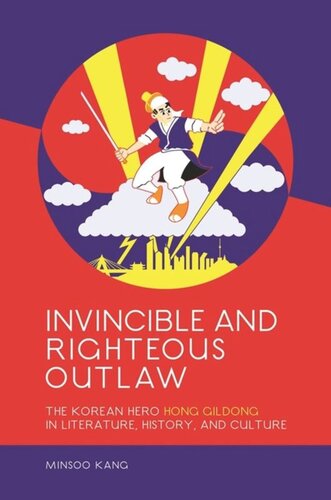

Most ebook files are in PDF format, so you can easily read them using various software such as Foxit Reader or directly on the Google Chrome browser.
Some ebook files are released by publishers in other formats such as .awz, .mobi, .epub, .fb2, etc. You may need to install specific software to read these formats on mobile/PC, such as Calibre.
Please read the tutorial at this link: https://ebookbell.com/faq
We offer FREE conversion to the popular formats you request; however, this may take some time. Therefore, right after payment, please email us, and we will try to provide the service as quickly as possible.
For some exceptional file formats or broken links (if any), please refrain from opening any disputes. Instead, email us first, and we will try to assist within a maximum of 6 hours.
EbookBell Team

4.3
48 reviewsOne of the most important and popular premodern Korean novels, The Story of Hong Gildong is a fast-paced adventure story about the illegitimate son of a nobleman who becomes the leader of a band of honest outlaws who take from the rich and punish the corrupt. Despite the importance of the work to Korean culture—it is often described as the story of the Korean Robin Hood—studies of the novel have been hindered by a number of myths, namely that it was authored in the early sixteenth century by statesman Heo Gyun, who wrote it not only in protest of Joseon-dynasty laws on the rights of illegitimate children, but also as a manifesto of his own radical political ideas.
In Invincible and Righteous Outlaw, the first book-length study of the novel in English, Minsoo Kang reveals that The Story of Hong Gildong was most likely written by an anonymous mid-nineteenth-century writer whose primary concern was appealing to the increasing number of readers in the late Joseon looking to be entertained and that the myth of Heo’s authorship can be traced to the writing of literary scholar Kim Taejun in the 1930s. Following a detailed examination of the history and literary significance of the novel—including analysis based on Eric Hobsbawm’s work on the universal figure of the noble robber—Kang surveys the many afterlives of the hero Hong Gildong, who throughout the decades has appeared and reappeared in countless revisionist novels, films, television dramas, and comics, even inspiring the creation of a Hong Gildong theme park in South Korea. He shows how the story was altered, distorted, and reinvigorated during and after the Japanese colonial period in both the North and the South for political, social, and literary purposes. While demonstrating the continued relevance of the novel and its hero in Korean culture up to the present day, Kang makes it clear that such narratives have served mostly to distance readers from a better understanding of this classic work.